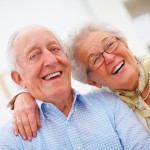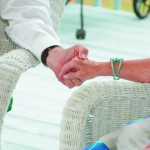Last year, some 31,000 “excess winter deaths” were recorded: mostly elderly people, who had succumbed to health conditions brought on by cold weather.
Now advice website www.myageingparent.com is asking families with elderly relatives to do all they can to prevent their loved one from being one of this year’s statistics.
“Each year we see an appalling and mostly unnecessary –death toll,” says the website’s co-founder Deborah Stone. “You only have to look at the statistics in other, colder countries to realise that many of these deaths can be avoided.”
So what is the advice available on the site?
“We’ve put together a simple check list of ten things,” says Deborah, “some of which may seem obvious. But if every family in the country helped their parents follow these precautions, thousands of lives could be saved.”
- Get a free seasonal flu jab. Not only is seasonal flu unpleasant, but it can also cause serious illnesses, such as pneumonia or bronchitis. The elderly and those with long-term health problems are most at risk. They should contact their GP, or talk to their pharmacist to arrange a jab, which is free for those aged 65 and over, and for those with other health risks. Family carers of elderly and disabled people can also qualify for a free jab.
- Try to avoid catching or spreading colds or flu. Everyone should cover their nose and mouth with a tissue when coughing or sneezing – including visitors and relatives. Used issues should be thrown away as soon as possible and your parents and should be encouraged to wash their hands regularly, taking a hand sanitiser gel when they are out and about.
- Stock up on cough and cold remedies, so they have them to hand if they suddenly feel ill.
- Eat healthily and regularly to keep up energy levels and immune systems – and so help fight infection. Plenty of hot food and drinks are essential, as are the “five a day” – which can also be obtained through tinned and frozen food. Keeping a good stock of these will prevent elderly people having to go out in icy weather.
- Stay active. Even moderate exercise can bring health benefits. If possible, encourage your parent to move around at least once an hour, but remember to speak to their GP before they start on any exercise plan.
- Dress for the weather. Wearing lots of thin layers – clothes made from cotton, wool or fleecy fibres are particularly good and help to maintain body heat.
- Electric blankets are excellent at keeping older people warm, especially those specifically designed to be kept on all night – but they do need to be tested every three years.
- Make the house as energy efficient as possible – both to keep it warm and reduce the incidence of damp. There are grants available under the “ECO” arrangements to insulate older people’s walls and lofts for free. Remember that loft insulation can reduce in thickness over time, and 270mm is now recommended. Draught proofing can also help – but do ensure that there are flows of air through the house to ensure damp is not retained.
- Make sure at least one room is kept warm. This needs to be between 18 and 21°C (65-70°F). If it is impossible to keep all the rooms warm, heat the living room during the day and the bedroom before bedtime. Draw curtains at dusk to help keep the heat generated inside the rooms and make sure that radiators are not obstructed by curtains or furniture.
- Claim allowances and benefits: Ensure your relatives are receiving all the financial help to which they are entitled, helping them to heat their home adequately. These include the tax-free Winter Fuel Payment, available to those who have reached the woman’s State Pension age, which varies according to when you were born. The Winter Fuel Payment is worth £200 for households with someone who qualifies aged up to 79, or up to £300 for someone aged 80 or over. The Warm Home Discount scheme, a discount of £135 on energy bills, is also available to help low-income and vulnerable households.




